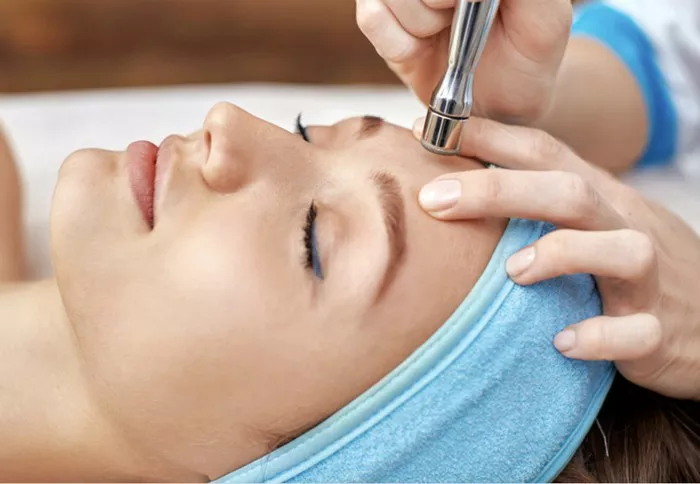In the ever-evolving landscape of skincare treatments, microdermabrasion has emerged as a popular choice for individuals seeking smoother and rejuvenated skin. However, as with any cosmetic procedure, questions and concerns arise, with one recurring inquiry standing out: Does microdermabrasion dry out your skin? This comprehensive article aims to dissect the intricacies of microdermabrasion, exploring its effects on skin hydration, dispelling myths, and providing insights into how to optimize this procedure for a radiant and moisturized complexion.
Understanding the Basics of Microdermabrasion
1. The Microdermabrasion Process:
Microdermabrasion is a non-invasive exfoliation procedure designed to remove the outer layer of dead skin cells, revealing a fresher and more youthful complexion. Whether administered by a skincare professional or through at-home kits, the process involves using abrasive crystals or a diamond-tipped wand to gently abrade the skin’s surface.
2. Mechanical vs. Crystal Microdermabrasion:
Distinct techniques define microdermabrasion procedures, with mechanical and crystal methods being the two primary approaches. Mechanical microdermabrasion employs a wand with a textured surface, while crystal microdermabrasion involves the use of fine crystals to exfoliate the skin. Understanding these methods sets the stage for exploring their potential impact on skin hydration.
The Myth of Microdermabrasion Drying Out the Skin
1. Common Misconceptions:
A prevailing misconception surrounding microdermabrasion is the belief that it inevitably leads to dry and dehydrated skin. In this section, we debunk this myth by delving into the factors that contribute to this perception and examining the nuances of how microdermabrasion interacts with the skin’s moisture levels.
2. Temporary Effects vs. Long-Term Benefits:
It’s essential to distinguish between the temporary effects immediately following a microdermabrasion session and the long-term benefits that contribute to overall skin health. While some individuals may experience transient dryness, understanding that this is often part of the skin’s natural healing process is crucial in dispelling unwarranted concerns.
Optimizing Microdermabrasion for Hydrated Skin
1. Hydration Preparations:
Preparation is key to ensuring that microdermabrasion enhances, rather than diminishes, skin hydration. This section explores pre-treatment steps, including proper hydration through adequate water intake, the use of moisturizing products, and consultations with skincare professionals to assess individual skin needs.
2. Post-Treatment Moisturization:
The immediate aftermath of a microdermabrasion session requires careful attention to post-treatment moisturization. Examining the role of hydrating products, choosing suitable moisturizers, and incorporating soothing ingredients contribute to maintaining optimal skin hydration levels.
At-Home Microdermabrasion and DIY Concerns
1. Home Kits and Hydration:
With the rise of at-home microdermabrasion kits, concerns about DIY procedures and their potential impact on skin hydration come to the forefront. This section delves into the nuances of at-home microdermabrasion, offering insights into responsible usage and considerations for maintaining skin moisture.
2. Professional Guidance for At-Home Use:
Seeking professional advice on at-home microdermabrasion kits is crucial for those navigating the DIY route. Dermatologists and skincare experts can provide personalized recommendations, ensuring that individuals harness the benefits of microdermabrasion without compromising skin hydration.
The Role of Skin Type and Individual Variability
1. Skin Type Considerations:
Recognizing that individual skin types play a significant role in how microdermabrasion affects hydration is pivotal. This section explores the impact on various skin types, from oily and acne-prone to dry and sensitive, offering tailored insights for each category.
2. Individual Responses to Microdermabrasion:
Understanding that individual responses to microdermabrasion can vary allows for a more nuanced perspective. Factors such as genetic predispositions, skincare routines, and lifestyle choices contribute to the diverse outcomes experienced by individuals undergoing this exfoliation process.
Enhancing Hydration Through Complementary Practices
1. Hydrating Skincare Routines:
Beyond microdermabrasion sessions, establishing a hydrating skincare routine proves instrumental in maintaining skin moisture levels. Exploring the role of cleansers, serums, and moisturizers creates a holistic approach to skincare that complements the benefits of microdermabrasion.
2. Lifestyle Factors and Hydration:
Lifestyle factors, including dietary choices, sleep patterns, and environmental considerations, can impact overall skin hydration. This section offers practical tips on incorporating lifestyle changes that support skin health and enhance the positive effects of microdermabrasion.
Conclusion
In conclusion, the question of whether microdermabrasion dries out your skin requires a nuanced understanding of the procedure, individual variability, and responsible skincare practices. While temporary dryness may occur, the long-term benefits of microdermabrasion, when optimized through hydration preparations and post-treatment care, contribute to a radiant and rejuvenated complexion. By dispelling myths, embracing individualized approaches, and combining microdermabrasion with complementary skincare practices, individuals can strike a balance that ensures hydrated and luminous skin – unveiling the true potential of this popular exfoliation technique.


